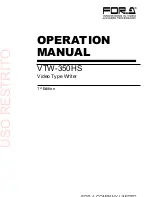
| 6
EN-Rev IM/GN-AM-EU/2.81 Copyright © December, 2021. CSI Solar Co., Ltd.
www.csisolar.com
Do not
lift modules by their wires or junction box, lift
them by the frame.
Do not
allow the panels to sag or bow under their own
weight when being carried.
Stacks of modules should contain no more than 12
modules, and the frames should be aligned.
Do not
place excessive loads on the module or twist the
module frame.
Do not
stand, step, walk and/or jump on modules
under any circumstances. Localized heavy loads may
cause severe micro-cracks at cell level, which in turn
may compromise module reliability and void Canadian
Solar’s warranty.
Do not
leave the module backsheet directly in contact
with the support structure underneath when
handling or installing the module.
Do not
carry modules on your head.
Do not
drop or place objects (such as tools) on the
modules.
Do not
use sharp instruments on the modules.
Particular care should be taken to avoid module
backsheets being damaged by sharp objects, as
scratches may directly affect product safety.
Do not
leave modules unsupported or unsecured.
Do not
change the wiring of bypass diodes.
Keep all electrical contacts clean and dry at all times.
Do not
expose the modules and its electrical contacts
to any unauthorized chemical substance (e.g. oil,
lubricant, pesticide, etc.).
PRODUCT IDENTIFICATION
Each module has three identical barcodes (one in the
laminate under the front glass, the second on the rear
side of the module and the third on the frame) that act as
a unique identifier. Each module has a unique serial
number containing 14 digits or 16 digits.
A nameplate is also affixed to the rear of each module.
This nameplate specifies the model type, as well as the
main electrical and safety characteristics of the module.
5.0 MODULE INSTALLATION
PRECAUTIONARY
MEASURES
AND
GENERAL SAFETY
Prior to installing modules please obtain
information about any requirements and necessary
approvals for the site, installation and inspection from
the relevant authorities.
Check applicable building codes to ensure that the
construction or structure (roof, facade, support, etc.)
can bear the module system load.
Canadian Solar modules have been qualified for
Application Class A (equivalent to Safety Class II
requirements). Modules rated under this class should
be used in systems operating at voltage above 50V or
power above 240W, where general contact access is
anticipated.
Canadian Solar standard modules have been certified
as Type 1 or Type 2 according to UL 61730 and Class C
according to IEC 61730-2 for fire class performance,
please refer to the datasheet or the product nameplate
for the detailed types.
Consult your local authority for guidelines and
requirements for building or structural fire safety.
UL 61730 SYSTEM FIRE RATING REQUIREMENTS







































